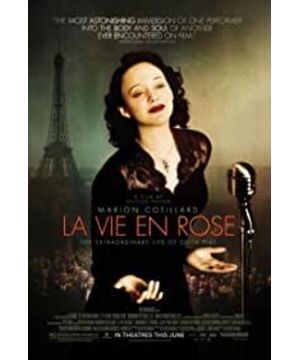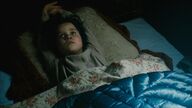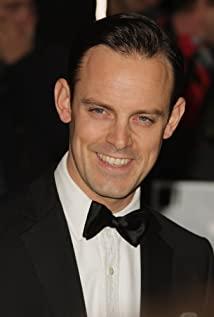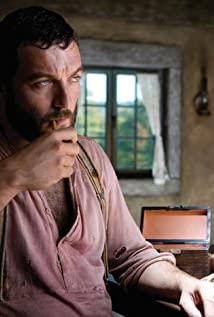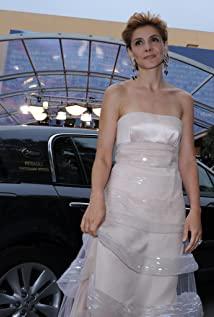It's not easy to make a movie, everyone is standing and talking without back pain, so no matter how good or bad, we pay tribute to the director!
The second film omits the introduction and cuts directly to the theme.
First and foremost, of course, is the narrative of the story. All movies are inseparable from the expression of the story, no matter what method you use, flashbacks, narration, body dialogue, etc., as long as you tell the story clearly, the film will not be too bad (Recently discovered that Almodovar is a storyteller) the expert!). The Golden Age (hereinafter referred to as Gold) and the Rose Life (hereinafter referred to as Rose) story timelines are expressed in the way of interlude, this kind of expression will make the audience have a stronger sense of destiny for the characters and complete the ins and outs of the story. The current situation, Thinking back to childhood, influence on the future. Relatively speaking, gold is inserted relatively little, and what is inserted is the conversation between Xiao Hong and Duanmu in the future at the city wall. (I originally wanted to find a screenshot, but most of Jin’s pictures are official stills and promotional photos.) At the same time, Jin inserted a large number of narrations from friends about Xiao Hong’s memories. The role of these narrations is to continue the development of the story and promote the plot. The third is to supplement the stories that could not be filmed or were not filmed. Childhood flashes at the end.
There are more roses inserted. It can be said that roses disrupt the normal timeline, and the jumping editing method is telling stories. This is the feature of Rose and the fun of watching the movie. Most people will be confused by the timeline when they first watch it. A moment of youth, a moment of old age, and at the end Edie is dying with flashbacks to her childhood and a wise reporter interview.
Personally, I think the golden interlude is completely cumbersome. Compared with the whole movie, the proportion of time is poor, and the supplement to the plot characters is not enough. It is not a key point or a turning point of fate at all. Disrupting the chronological order is inherently such a thing. It will make people feel inexplicably irritable, or it will be a lot of chaos like a rose, making him a special expression, or it will be a normal timeline obediently, and it will be so bland after jumping once or twice. It will disturb the mind of the audience. When it comes to the narration, the audience is actually here to watch the movie, not to listen to the cross talk. As a movie, I personally feel that the narration is only suitable for explaining the background of the times. If the movie is reduced to just relying on language to express it, it will be too pale and powerless. Ah! ! ! So the narration should be used with caution~
Character characterization, because it is a biographical film, the protagonist's character, encounter, and life description are the most important things. The selection of the story, the main line and the secondary line, the performance of the protagonist, all other supporting roles, as well as music, scenes, composition, light and shadow are all to reflect the protagonist to serve, to make the audience feel that the protagonist has such a destiny, there is a certain At the same time, there is an unexplainable sense of fate. Instead of unfolding a face for no reason. Here is an example of roses. Whether you've read Freud or not, the setting of the story, childhood and family life have a huge impact on character formation! It can even foretell the fate of a character's life. Therefore, the pen and ink left for childhood life is indispensable, but the childhood pictures of less than 5 minutes at the beginning of the gold are still accompanied by narration, and the flashbacks at the end are only less than 3 minutes! Compared with the 3-hour movie, the proportion is too small, how can it be explained clearly? ! And Rose, at least a quarter of the time to shoot childhood, Edie was sent to the grandma who opened a brothel when she was a child, lived with prostitutes every day, witnessed the darkness of the lives of women at the bottom, and established a deep relationship with the prostitute Titini She suffered from eye disease once. After medical treatment and prayers, her eyesight was restored. From then on, she had her own "god". After being picked up by her father, she followed her father to live a semi-vagrant life. The little girl stood on the street and sang the Marseillaise cowardly. But it won the sympathy of the masses. Edie's talent has since been developed. This is Edie's childhood, the main message I got from the film, because of the lack of discipline in her childhood, her character was eccentric and domineering, and her adult singing career offended many people. Because of the lack of love, he was inseparable from his boyfriend who ate soft rice when he was young. He had a romantic relationship with Marseille, a married boxer, but he lost his lover and abused drugs since then. Because Faith wears her cross every time she takes the stage. This is a flesh-and-blood Edie who can find his roots.
Xiao Hong's "The Legend of Hulan River" may give us more ideas about gold. Much of Xiao Hong's childhood and her tragic character are supplemented from the biography of Hulan River. To sum up a word "desolate", whether it is a novel or the life of Xiao Hong's childhood, it is desolate, desolate in the lively. The sky is full of stars, the house is full of moon, how is life, why is it so sad. (Stop here, or else I will write from the movie to the novel~)
A writer and a singer, both have rich emotional experience, which one is better to make a movie, Rose is so successful, a large part of the title is at the end, Rose Life is not only a famous song represented by singers, but also Edi's love for old age. The perception of life. A dialogue from an interview with a reporter on the beach:
Reporter: Would you be willing to live a normal life? Edie: That's the truth.
Reporter: Who is your most loyal friend? Edie: My real friends are loyal.
Reporter: Are you afraid of death? Edie: I'm more afraid of loneliness.
Reporter: Do you pray? Edie: Yes, because I believe in love.
Reporter: Advice for women? Edie: Love.
Reporter: Advice for girls? Edie: Love.
Reporter: Advice for children? Edie: Love.
Well, it is this kind of plausible statement that everyone can say but not everyone can do to sublimate the film, maybe this is philosophy. The golden age is a big topic, and the origin of the name has been repeatedly debated on the Internet, but Xiao Hong wrote in a letter to Xiao Jun, "This is my golden age", a period of Xiao Hong's most beautiful time. Personally, I think that if the film can focus on the hard times, the beauty brought by Xiao Jun to Xiao Hong, which makes Xiao Hong create some good works, may be more suitable for the topic. The contrast between the individual and the entire era makes the conflict wonderful. Just like Eileen Chang's "Love in a Fallen City". It's a pity that the film's ambition is big enough, and it is slightly limited in execution.
This is the first time to compare and write a movie, and overall I still appreciate Rose's life more. At the end, there is a flashback to childhood accompanied by Edie's classic songs. Dad took out the doll from his arms that he had long loved but was reluctant to buy. Little Edie from Maizhong, let's end with this.
View more about La Vie En Rose reviews


